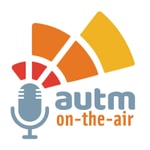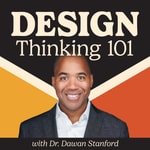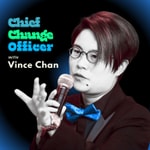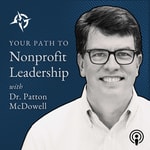AUTM on the Air – Details, episodes & analysis
Podcast details
Technical and general information from the podcast's RSS feed.

AUTM on the Air
AUTM
Frequency: 1 episode/8d. Total Eps: 261

AUTM on the AIR is the weekly podcast that brings you conversations about the impact of research commercialization and the people who make it happen. Join us for interviews with patent and licensing professionals, innovators, entrepreneurs, and tech transfer leaders on the issues and trends that matter most.
Recent rankings
Latest chart positions across Apple Podcasts and Spotify rankings.
Apple Podcasts
🇨🇦 Canada - technology
04/07/2025#75🇨🇦 Canada - technology
03/07/2025#67🇨🇦 Canada - technology
07/03/2025#93
Spotify
No recent rankings available
Shared links between episodes and podcasts
Links found in episode descriptions and other podcasts that share them.
See all- https://www.nasa.gov/
422 shares
- https://bayerstrategic.com/
169 shares
- https://www.gatesfoundation.org/
134 shares
RSS feed quality and score
Technical evaluation of the podcast's RSS feed quality and structure.
See allScore global : 53%
Publication history
Monthly episode publishing history over the past years.
Redefining DEI in Innovation: Lily Zheng on the FAIR Framework for Tech Transfer
mercredi 5 mars 2025 • Duration 30:09
What happens when workplace equity efforts get lost in performative gestures? Today we’re talking about the conventional approach to workplace equity and the DEI landscape. As organizations face growing political pressure and increasing scrutiny of DEI programs, a more effective and outcome-driven approach has never been more urgent.
Lily Zheng is a strategist, consultant and author who helps build fair, accessible, inclusive and representative organizations. They are the creator of the FAIR framework which has been featured in the Harvard Business Review and their book Fixing Fairness will be out soon.
In this conversation, Lily will break down the limitations of traditional DEI models and why the FAIR framework (Fairness, Access, Inclusion, Representation) is a more defensible and better way to go. We’ll get into the four core principles of FAIR: outcomes, systems, coalitions and win-win solutions and how they provide a strategic foundation for lasting change in the workplace.
This is especially timely for university tech transfer offices. With new federal directives calling into question DEI initiatives in research funding, many institutions are scrambling to adapt without sacrificing their core values of inclusivity and innovation. Lily will give practical advice on how to navigate this, reframe programs to stay compliant without losing impact.
In This Episode:
[01:47] Lily suggests the FAIR Framework to replace DEI. They wanted to set apart effective DEI work from the fluff. The plan was to distill what did work and what didn't and packed what did work into a new framework.
[04:50] FAIR speaks to the goal of the work. The letters stand for fairness, access, inclusion, and representation.
[05:24] There are four principles behind the framework including outcomes, systems, coalitions, and win-win.
[07:38] DEI turned into splintered single issue causes.
[08:39] We are stronger together, and coalitions are a hallmark of DEI work.
[01:47] Lily suggests the FAIR Framework to replace DEI. They wanted to set apart effective DEI work from the fluff. The plan was to distill what did work and what didn't and packed what did work into a new framework.
[04:50] FAIR speaks to the goal of the work. The letters stand for fairness, access, inclusion, and representation.
[05:24] There are four principles behind the framework including outcomes, systems, coalitions, and win-win.
[07:38] DEI turned into splintered single issue causes.
[08:39] We are stronger together, and coalitions are a hallmark of DEI work.
[20:33] Tech Transfer offices can focus on FAIR and understand the law. Follow the law and make any necessary adjustments to your program. Defend the highly legal and effective work you are doing.
[24:41] If you have to change your language, make sure you don't change your impact.
[26:32] There are still great ways to be compliant.
[27:57] We have more than enough capacity, skill, caring, and generosity to do this work. It's up to us to continue to sustain impact.
Resources:
Reconstructing DEI: A Practitioner's Workbook
Defending American Science: Holden Thorp on the NIH Funding Crisis and the Future of Research
mercredi 26 février 2025 • Duration 39:04
Research doesn’t happen in a vacuum. It needs a foundation of stable funding, institutional support and policies that empower researchers to innovate. But today that foundation is under threat.
In this episode we dive into one of the biggest problems facing American research: the NIH funding crisis. On February 7th the National Institutes of Health (NIH) slashed indirect cost reimbursements from 50-60% to 15%. This has sent shockwaves through the academic and research communities. With this policy change universities across the country are facing an unprecedented financial squeeze and are having to re-budget, slow hiring and even rethink long-term projects.
Joining us today to break it all down is Dr. Holden Thorp, Editor-in-Chief of the Science family of journals and one of the most influential people in the world of science. With a career spanning chemistry, academic leadership and biotech innovation Dr. Thorp has been Chancellor of UNC-Chapel Hill, Provost at Washington University in St. Louis and co-founder of Viamet Pharmaceuticals. He’s also a strong advocate for scientific integrity and the role of universities in innovation.
We discuss how this funding issue may transform the US research scene, ranging from how it may affect universities to the potential of brain drain as top researchers consider migrating to Europe or China where funding is more stable. We address the lawsuit challenging the NIH policy and how uncertainty is already delaying significant projects such as Johns Hopkins' $330 million neuroscience facility and critical maternal health initiatives.
Dr. Thorp discusses whether universities should rely more on industrial relationships, or if this risks diluting curiosity-driven research. We also discuss how universities, organizations, and state governments might work together to put pressure on Congress and find strategic solutions.
In This Episode:
[01:17] Explanation of the NIH’s February 7th directive, which capped indirect cost reimbursements at 15% instead of the usual 50–60%.
[02:05] Dr. Thorp breaks down the difference between direct and indirect research costs, using a cooking analogy to explain how universities rely on indirect cost recovery for infrastructure, lab maintenance, and tech transfer operations.
[04:12] How the federal government and universities developed a shared-cost model for research after World War II to encourage curiosity-driven discoveries.
[05:40] How funding uncertainty affects long-term projects. Risks to major initiatives like Johns Hopkins’ $330 million neuroscience facility and Michigan State’s maternal health programs.
[06:15] Many universities borrow against future indirect costs to finance construction. The new NIH policy threatens these financial models, potentially affecting bond ratings and making future research investments more expensive.
[07:32] Dr. Thorp explains how these funding cuts could drive top international researchers to Europe and China, where funding structures are more stable.
[10:22] Some universities are now adding caveats to admissions letters, warning that funding isn’t guaranteed. Risks of eroding trust in academia as a stable career path.
[12:29] Beyond litigation, universities must build coalitions with industry, nonprofits, and state governments to pressure Congress and prevent further damage.
[16:10] They have a Trump tracker with very up-to-date funding information. It's also in the Science Advisor newsletter.
[17:15] The potential role of biotech firms and philanthropic ventures in filling funding gaps. Risks of diluting curiosity-driven research.
[20:23] Many HBCUs and regional universities rely heavily on NIH funding, and these cuts could exacerbate existing inequities in research capacity.
[24:28] Comparisons to the 2008 financial crisis, the 2013 sequestration, and other funding challenges. This situation is unique.
[28:45] Can protests and public pressure force change? The impact of researcher protests, bipartisan pushback in Congress, and media scrutiny.
[31:34] Dr. Thorp questions whether historically competitive universities will set aside differences and embrace shared research infrastructure and open-source models.
[33:04] Young researchers should stay the course, emphasizing that science is cyclical and funding priorities will shift again.
[34:53] It's important to talk about the economic impacts and issues with healthcare related to budget reductions.
[37:20] The scientific community’s ability to adjust and innovate will be key to weathering this storm.
Resources:
Dr. Holden Thorp - Columbian College of Arts & Sciences
Engines of Innovation: The Entrepreneurial University in the Twenty-First Century
Our Higher Calling: Rebuilding the Partnership between America and Its Colleges and Universities
Adapting to Change: Insights on Europe’s Unitary Patent System with Robert Alderson and Mariella Massaro
mercredi 11 décembre 2024 • Duration 44:10
In 2024, the European patent system is undergoing one of its most significant transformations in decades. The introduction of the Unitary Patent and the Unified Patent Court is reshaping how intellectual property is protected and enforced across Europe. For innovators and businesses alike, this marks a pivotal moment—one that promises streamlined processes but also introduces new complexities. Today, we’re exploring what these changes mean and how they might impact the future of innovation.
Joining me for this fascinating discussion are two renowned experts in intellectual property law, Robert Alderson and Mariella Massaro, partners at Berggren, a leading European IP firm. Both Robert and Mariella bring unique perspectives and deep expertise to our conversation. Robert is a rare hybrid in the IP world, qualified to practice before the United States Patent and Trademark Office, the European Patent Office, and now the Unified Patent Court. With more than 20 years of experience spanning two continents, he offers a nuanced understanding of both U.S. and European patent practices.
Mariella’s career has been equally impressive. A Certified Licensing Professional and recognized IP strategist, she has nearly two decades of experience navigating the complexities of IP litigation and commercial transactions. Her work with clients preparing for the Unitary Patent system highlights the practical challenges—and opportunities—that lie ahead. From pharmaceuticals to fashion, her portfolio reflects the wide-reaching implications of this new patent framework.
Together, Robert and Mariella will break down what you need to know about the Unitary Patent and Unified Patent Court, offering insights on how to prepare, adapt, and thrive in this evolving landscape. Whether you’re an inventor, an entrepreneur, or simply curious about the future of innovation, you won’t want to miss this episode.
In This Episode:
[04:22] Mariella shares an example of what UPC is now. She talks about Seoul Viosys Co., Ltd. and Seoul Semiconductor Co., Ltd., v. Expert Klein GmbH, expert e-Commerce GmbH, Düsseldorf (DE) LD.
[05:06] The UPC court is very fast.
[08:56] Mariella talks about another case, 10X Genomics and Harvard v. Nanostring, that sets the criteria for claims interpretation for validity and infringement.
[10:00] Robert talks about Sanofi v. Amgen. This was the first successful revocation action at the UPC. If you're going to file a patent in the US and Europe, you have to satisfy the different requirements.
[12:38] The application of the doctrine of equivalents at the UPC.
[13:45] What happens when there is a UPC action that is conducted in parallel with the EPO opposition? Astellas versus Herios.
[15:41] Focusing on unitary patents and filing and prosecution strategy. There has been an uptick in unitary patents.
[16:29] Robert talks about the transitional period in unitary patents.
[19:41] AIM Sport versus Suponor. Some of these issues are only for the transitional period.
[22:02] If the national patent application strategy is going to be used, it's important to understand which countries you can use the PCT route and which countries you can't.
[22:34] How TTOs can use this transitional period to balance the risk. Use a unitary patent with the broadest possible claims, and then file a divisional application and classically validate that patent.
[24:22] We learn about literal double patenting. This is only available under specific circumstances.
[26:50] This strategy is being utilized in the US currently.
[27:14] What TTOs need to know when licensing their patent portfolios in Europe. Make sure all of your rights in the ownership agreement are addressed specifically.
[37:33] How representation of joint owners before the EPO and UPC work.
[38:13] The first applicant listed is considered the common representative.
[40:33] Robert and Mariella share what they think TTOs should look out for in 2025.
Resources:
Bringing Innovation to Impact through the USPTO with Kathi Vidal
mercredi 8 mars 2023 • Duration 17:56
With a background in electrical engineering and law and a passion for creating impact, Kathi Vidal is brilliantly suited to her role as the Director of the United States Patent and Trademark Office.
During this episode, you will hear about Kathi’s career trajectory, the organizations that she is involved with, and the factors that motivate her to do what she does.
The USPTO is focused on fostering innovation, particularly in key technology areas such as NFTs, AI, and emerging technologies. Kathi explains their approach to helping turn ideas into businesses and how they enhance diversity and equity, and inclusion within and outside their organization!
In This Episode:
[00:33] Introducing today’s guest, Director of the United States Patent and Trademark Office, Kathi Vidal.
[02:05] How Kathi ended up at university at the age of 16 and why she chose to study electrical engineering.
[03:43] Where Kathi has drawn her inspiration from throughout her career in the private and public sectors.
[04:04] The various organizations that Kathi is involved with.
[05:58] Kathi explains the importance of enhancing diversity, equity, and inclusion.
[07:22] The process of developing the USPTO’s action-packed 2022-2026 Strategic Plan.
[09:42] Focal areas for the USPTO’s innovation-fostering efforts.
[12:06] An overview of the USPTO’s Legal Experience and Advancement Program (LEAP).
[15:00] The two overlapping pro bono services offered by the USPTO that help entrepreneurs turn their ideas into products and businesses.
Resources:
Taking Diversity Further in STEM with Tarianna Stewart
mercredi 1 mars 2023 • Duration 27:56
Gender disparities are particularly pronounced in the STEM fields, with only 28% of the workforce in STEM professions being women. Tarianna Stewart is one of the 28%, and she’s had a wide range of experiences throughout her fruitful career, which she shares with us today.
During this episode, Tarianna explains what drew her to science in the first place, the exclusion she experienced while working at a law firm, what she learned during her time as a licensing associate at Georgia Tech (the first woman of color to hold this position at the university), and what her current role as a Core AI Licensing Executive at IBM Research entails.
We also discuss the movement towards the inclusion of underrepresented groups that has taken place in recent years and Tarianna’s thoughts on what we can all do to enhance this further. Because of the diversity of her experiences, the advice that Tarianna shares will be relevant and valuable to a broad scope of professionals!
In This Episode:
[01:07] Introducing Tarianna Stewart, Core AI Licensing Executive for IBM’s Research Intellectual Property Group.
[02:18] An overview of Tarianna’s diverse educational journey.
[04:16] Why Tarianna was drawn to the science field.
[06:01] Benefits of the Patent Pipeline Program.
[06:46] Factors that make law firms traditionally uninclusive.
[08:31] Tarianna explains how she became a licensing associate at Georgia Tech and what her experience there was like.
[09:50] The biggest surprise Tarianna received when she became involved in technology transfer.
[10:44] How Tarianna came to her current role at IBM Research.
[12:26] How IBM Research is structured, and what Tarianna’s role entails.
[13:07] Differences between working in technology transfer and industry.
[14:16] Advice for technology transfer professionals around navigating negotiations with industry
[17:03] Why enhancing diversity in the workplace needs to start in the home.
[20:20] Tarianna’s thoughts on the progress that has been made with regard to diversity in recent years.
[20:38] How STEM leaders can create more inclusive environments and foster opportunities for underrepresented groups.
[24:04] The importance of educating the younger generations about the opportunities that lie in STEM.
[26:35] One of Tarianna’s proudest moments as a woman of color working in STEM.
Resources:
Breaking Down Barriers in the Innovation Ecosystem with Almesha Campbell
mercredi 22 février 2023 • Duration 42:39
Today’s guest is a first-generation university graduate, the Assistant Vice President for Research and Economic Development at Jackson State University, the first Black Chair of the Board of Directors for AUTM, a Ph.D. holder, and a mother of two.
Almesha is a trailblazer in the technology transfer field and a true asset to the industry. Her unwavering commitment to innovation and entrepreneurship, especially among underrepresented populations, has earned her recognition and accolades from numerous organizations.
During this episode, Almesha Campbell talks about her educational and career background, the people in her life who have influenced and motivated her to be the best version of herself, her goals of enhancing equity, diversity, and inclusion far beyond the borders of her university, and the strategic initiatives that she will be focusing on at AUTM in the coming year.
In This Episode:
[00:40] Introducing Almesha Campbell, the Chair of the Board of Directors for AUTM.
[01:42] What Almesha aims to achieve while holding her current position.
[03:34] An overview of Almesha’s career journey to date.
[05:26] The mentors who have played an influential role in Almesha’s life.
[11:33] The problem with having a lack of diversity at the leadership level.
[15:52] Exploring the programs that foster innovation and entrepreneurship at Jackson State University and beyond.
[23:15] Advice for establishing successful innovation-focused university-based programs.
[26:59] Lessons that Almesha learned from her mother and grandmother that have shaped her into the person she is today and how she is passing those lessons on to those around her.
[31:57] Why the underrated skill of listening is foundational to enhancing diversity, equity, and inclusion.
[34:05] Barriers to enhancing diversity, equity, and inclusion and Almesha’s thoughts on how those can be broken down.
[37:25] Four key strategic initiatives that Almesha plans to bring to life at AUTM in the coming year.
Resources:
What To Expect From the 2023 AUTM Annual Meeting with Ian McClure
mercredi 15 février 2023 • Duration 09:33
If you’re looking to network with thousands of technology transfer professionals, enhance your knowledge, or for opportunities to give back to the AUTM community, the AUTM Annual Meeting in Austin is the place to be in one week's time! Today’s guest is Ian McClure, Chair of the AUTM Board, who is here to share what you can expect from both the in-person and hybrid versions of this highly anticipated event.
In This Episode:
[01:22] The size of the upcoming AUTM Annual Meeting.
[01:38] What to expect from the hybrid version of the AUTM Annual Meeting.
[03:18] How AUTM decides where to host the Annual Meeting.
[03:44] Why you should attend the AUTM Annual Meeting.
[04:46] Some of the add-on courses that will be on offer at the Meeting.
[06:30] The opportunity to lace up your running shoes for Team AUTM (and raise money while doing so!)
[07:28] Work being done by the AUTM Foundation.
Resources:
Unlocking Inclusivity in Innovation: The AUTM EDI Toolkit
mercredi 8 février 2023 • Duration 18:27
“Demographically diverse teams outperform non-diverse teams in terms of innovation, creativity, and complex problem-solving.”
To promote and assist in the development of a more inclusive innovation ecosystem, Karen Maples and the rest of AUTM’s Equity, Diversity and Inclusion (EDI) Committee created a powerful resource in the form of an AUTM EDI Toolkit.
During this episode, Karen provides an overview of the four core components that are explored in depth in the Toolkit (understanding biases, measuring impact, building systems, and expanding networks), offers advice on where the journey of enhancing EDI should begin, and shares her five golden rules for incorporating EDI initiatives into an organization.
In This Episode:
[00:59] Introducing Karen Maples, the Chair of AUTM’s Equity, Diversity and Inclusion (EDI) Committee.
[02:17] An overview of the process of creating the AUTM EDI Toolkit.
[03:41] Benefits of diversity in the workplace.
[03:54] The intention behind the creation of the EDI Toolkit
[04:34] Two common challenges experienced by leaders in relation to EDI and how the Toolkit helps to combat them.
[06:55] The four core EDI components that are explored in the Toolkit.
[10:10] The importance of using person-first language.
[11:15] Exploring the concept of supplier diversity.
[12:26] Factors that make the AUTM EDI Toolkit unique.
[13:22] Karen’s recommendations for making the best use of the Toolkit.
[14:08] The most important first step to enhance EDI in your organization.
[15:44] Karen’s five golden rules for developing your EDI initiatives.
[16:29] The AUTM EDI Committee’s upcoming plans.
Resources:
From Idea to Impact: The Finalists of the 2023 Better World Awards
mercredi 1 février 2023 • Duration 36:14
AUTM’s Better World Project recognizes and honors innovative technologies that have the potential to make a significant positive impact on society. In this episode, I speak with the three finalists for the Better Word Project Award.
The first nomination is a novel protein sub-unit vaccine that has overcome issues relating to the cost, scalability, and storage of other vaccines. Nomination number two is the iStent ocular tube which treats glaucoma, an eye condition that is the leading cause of blindness worldwide. The third nomination is a non-invasive therapy that effectively treats numerous neurological disorders.
Listen to this episode to learn about each nominee and then cast your vote for the technology you think is most deserving of the BWP Award! [Voting closes at 3 p.m. Central Time on February 21]
In This Episode:
[00:41] The goal of the Better World Project (BWP).
[00:59] Introducing the first BWP nomination, a novel protein sub-unit vaccine developed by scientists at Baylor College of Medicine and Texas Children's Hospital.
[02:19] Issues relating to cost, scalability, and storage of most COVID-19 vaccines.
[04:34] How the scientists at Baylor College of Medicine and Texas Children's Hospital have overcome these challenges.
[07:35] The role of universities in the commercialization and distribution of vaccines.
[11:43] Factors that Brad Kairdolf and his team took into consideration when they decided not to file for a patent for the vaccine.
[15:16] Successes that Baylor College of Medicine and Texas Children's Hospital have seen since the development of the vaccine.
[02:34] Introducing the second BWP nomination, the iStent ocular tube developed by Dr. Richard Hill.
[18:02] Alvin Viray explains what glaucoma is and what causes it.
[19:39] How the iStent ocular tube works and the journey to commercialize it.
[23:26] Why the iStent is preferable to traditional glaucoma treatment options.
[26:15] Alvin shares his thoughts on how this technology will evolve in the future.
[27:22] Introducing the third BWP nomination, EKKO Wave Therapeutic Device, which uses vibrational waves to non-invasively treat neurological disorders.
[28:23] A few things you probably didn’t know about the National University of Sciences & Technology (NUST).
[29:17] Dr. Rizwan Riaz explains how the EKKO Wave Therapeutic Device works and the R&D process involved in developing it.
[31:01] Neurological disorders that the EKKO Wave Therapeutic Device can treat.
[31:56] Comparing the EKKO Wave Therapeutic Device to more traditional neurological therapies.
[32:53] The process of commercializing the EKKO Wave Therapeutic Device.
[34:09] Revolutionary potential of the EKKO Wave Therapeutic Device.
Resources:
National University of Sciences & Technology
Technology Transfer: A Singaporean Perspective with Hui Ying Ang
mercredi 25 janvier 2023 • Duration 19:07
“Don’t underestimate the impact you can bring to the innovation ecosystem.”
Culture shapes almost all aspects of society, including the innovation ecosystem. In today’s episode, we have our first guest from Singapore, Dr. Hui Ying Ang, who is here to provide us with a better understanding of the technology transfer field in her country.
Hui Ying is an associate director with the Industry Liaison Office (ILO) from the National University of Singapore, and in this episode she explains how she first became aware of technology commercialization, the challenges that she has faced since entering the technology transfer space, the four main approaches that the National University of Singapore uses to support technology transfer efforts, and more!
In This Episode:
[00:55] Introducing Dr. Hui Ying Ang, associate director of the ILO at the National University of Singapore (and the first Singaporean guest on the podcast!)
[02:05] The experience that led Hui Ying into the world of technology transfer after she completed her Ph.D.
[03:46] Hui Ying’s advice to anyone new to the technology transfer profession.
[05:12] Elements of the technology transfer industry that still surprise Hui Ying five years after she entered it.
[06:30] Hui Ying provides an overview of the technology transfer process at the National University of Singapore.
[08:04] The four main approaches that the National University of Singapore uses to support technology transfer efforts.
[09:50] Some of the main grants that support the commercialization of technologies in Singapore.
[10:32] Common problems that Hui Ying has faced as a technology transfer professional.
[13:34] Achievements that Hui Ying is most proud of.
[14:41] How Singaporean culture and ideals shape the innovation ecosystem in the country.
[16:21] Gender discrepancies in STEM fields in Singapore, and what is being done to encourage women to enter these spaces.
[17:57] Hui Ying’s hope for the future of technology transfer.
Resources:
National University of Singapore









